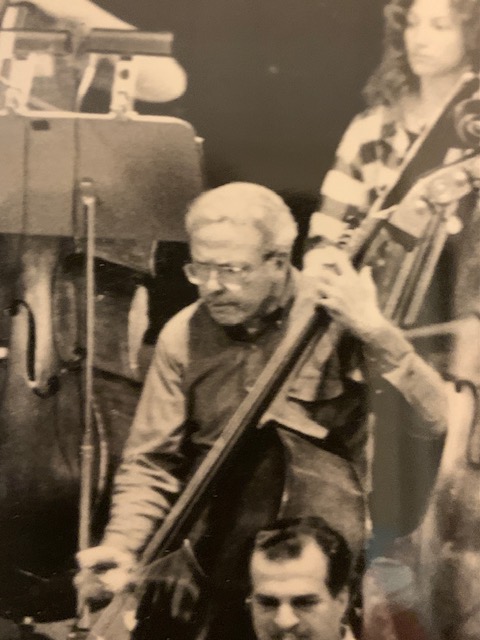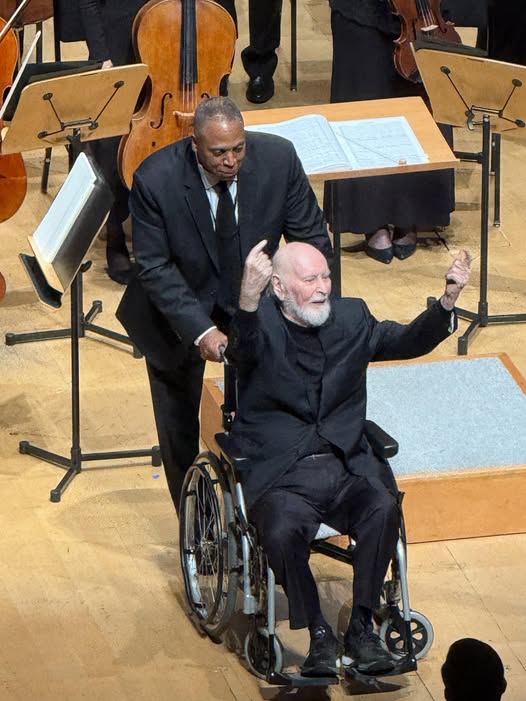Want to play Tchaikovsky? Break some rules
mainFrom our diarist Anthea Kreston:
We were working on the opening of the Tchaikovsky violin concerto. She was one of a handful of older students of mine – already in a career, but taking auditions and playing concerts – she wants a little finishing help and advice. It was beautifully played, as always – clean, smart, well-prepared. But we have been, these last years, working on inhibition – honesty and truth – what are the notes asking of us – can we let go of everything and do those things it tells us to, no matter how intimate, inappropriate, even violent – no matter that the things it asks of us will never occur in our lives, things we would never dare to do and yet sometimes want to do.
As musicians, we struggle with the concepts of id, ego and super-ego. In a nutshell, I mean that we are in a system where we have thousands of detailed, external rules – things which must be followed microscopically – the super-ego of classical music – those societal restraints, deeply embedded and followed – we are petrified of even approaching a line over which would be something inappropriate (think for a moment how you feel about Kopatchinskaja). That is where this student is. The internalization of cultural rules. And she does it beautifully.

But in classical music – isn’t it the struggle between the id and the ego which drives us onward? Those illicit feelings – Brahms and Schumann both filling their music with Clara – her hand inside, around, throughout every single piece of music either of them published. Her edits, but also her heart and intellect. Her defining fifth – the Clara sigh – boldly put at the beginning of Schumann 3rd string quartet, everywhere – and also in broad daylight in Brahms. But also hidden, woven inside, twisted into unbridled passions and desperate pleas. Things they never dared to do. What happened between Johannes and Clara, when they took their one-and-only trip together, to the mountains in Switzerland right after Robert‘s death? She later burned her diaries and letters from that period – although the stacks and stacks of letters and diaries remain from the rest of her life. I hear this vacation at the end of the slow movement of Brahms 51/2 – this is there one and only moment of privacy – he is saying please please….please – and she is saying – the children, Robert, Syphilis……. with the complications of their lives swirling around them, obscuring their words, reigning in passions, does the ego overcomes the id? The door shuts.
The id – that rustic, guttural desire, the uncomplicated animalistic instincts – to kill, to procreate – impulse, action without a moment‘s thought of repercussion. That is what classical music is. The stabbing of a human in Janacek „Kreutzer Sonata“, the whispers and shuffling of feet in Berg‘s Lyric Suite – the name of his mistress written in code, found decades later in a desk drawer – a secret vocal part. Shostakovich and his dangerous dance with politics. But these, somewhat obvious things are not what I am talking about. It is the sentiments directly through the notes which we must open ourselves to – which we must discover and inhabit. We don’t want to have the ego smooth things out – we want pure, unadulterated id.
At night, after I put the girls to bed, I take a tour around the house, putting the markers back in the marker drawer, folding the blankets, straightening the shelves, housewifery business. On occasion, I come across something so sweet and tender – a whole line of small stuffed animals, each intricately wrapped in a scarf or tea-towel, sitting together along the back of a couch. I unwrap, put the scarves away, and the stuffies back in their bin. This is what we have to do to our music. Take each note out, and wrap it in a little blanket. Take care of each one.
I told my student that, although she sounds lovely, I am left feeling cold. Isn’t every note of the opening of Tchaikovsky a warm little stuffed animal? There is no rhythm, just a fluctuating pulse – it is a meandering, comfortable love song, weaving back and forth between desire and satisfaction. There are no rules – there is only you, and your relationship to your imagination, and your ability, through music, to do all the things in life that you won’t ever be able to do, that you can’t even allow yourself to desire. That is why we go to concerts – that is why we practice with such discipline. So that we can break all the rules, and run free. Take each note, and let it speak to you – let it say anything it needs to, wants to.
I asked her ‘didn’t you always want to have a boyfriend who would hold your hand when you walk down the street?’ She said yes. ‘Well, now you do, you have anything you want – it is our gift from Tchaikovsky, and your gift to your audience – it is what they deserve, and why they come to concerts – don’t worry about what you were taught, the boundaries or rules – that is all behind you.
‘Now you make your own rules.’





Comments